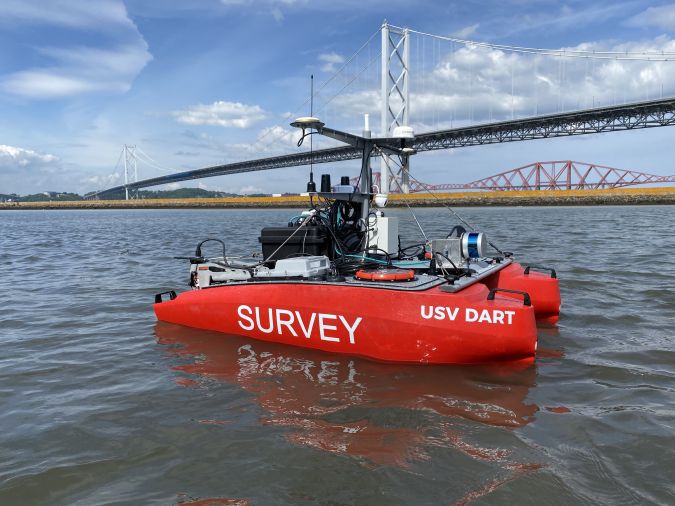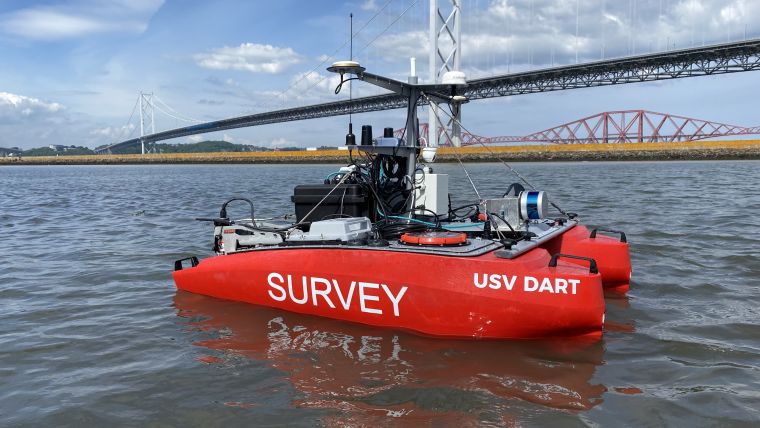South Devon College Pioneers Maritime Autonomy Training with Acquisition of Two USVs
South Devon College has acquired two Uncrewed Surface Vessels (USVs) that will give marine autonomy students at its new Marine Academy hands-on experience of remote vessel operation. The USVs were unveiled in April at the Academy’s opening ceremony in Dartmouth, England; a milestone moment in the history of South Devon College, which is celebrating its 90th birthday this year.
The REAV-16 and REAV-10 USVs, named USV Dart and USV Exe, were built by HydroSurv – based in Exeter, just a stone's throw away from Dartmouth – for research collaborations and demonstrations that catalysed the company’s international growth. HydroSurv has since refitted and upgraded the fully electric, zero emission vessels for use by future students at the Academy, which aims to support industry by delivering a skills pipeline to meet the demands of a rapidly changing maritime sector.
Familiarization with current and future unmanned vessel innovations will be a key element of the college’s planned marine autonomy training, due to be rolled out across multiple learning levels from September 2022.
The Development of USV-related Training
Paul Singer, business and qualification development coordinator at South Devon College, said: “The use of USVs in industry is increasing every day and South Devon Marine Academy will be taking a leading role in the development of USV-related training, from maintenance and servicing through to in-service operations. Our new workshops and classrooms are just metres from the River Dart, making them the ideal location from which to deliver this training.”
The use of USVs for commercial operations is creating career options for maritime students that did not previously exist. Marine engineers, for example, need to understand their operation, maintenance and propulsion systems. From a programming, cyber security and civil engineering perspective, digital media professionals will also benefit from an awareness of the technology as it becomes widely adopted for a range of data-collection applications.
Seeding of New Skills
David Hull, founder and CEO of HydroSurv, said: “Both USVs were originally developed, tested and demonstrated within industrial research projects. These projects focused on platform design, core technology development and industrial showcasing through a series of real-world demonstrations to end users, equipment manufacturers and academia.
“Following refit and upgrade, the second life use of these USVs has come full circle to support the seeding of new skills that are in strong demand across the ocean technology space. We’re delighted to be partnering with South Devon College, which is putting future specialist skills into the hands of tomorrow's workforce, enabling them to take on important, productive jobs in the sector.”
South Devon College and HydroSurv enjoy a long-standing relationship. As part of a growing Southwest clean maritime cluster, the collaboration is a strong example of how partnerships between academia and the business community are actively addressing the skills gap and opening additional research and development opportunities. HydroSurv currently hosts an apprentice from the college, with another intake planned this year.















